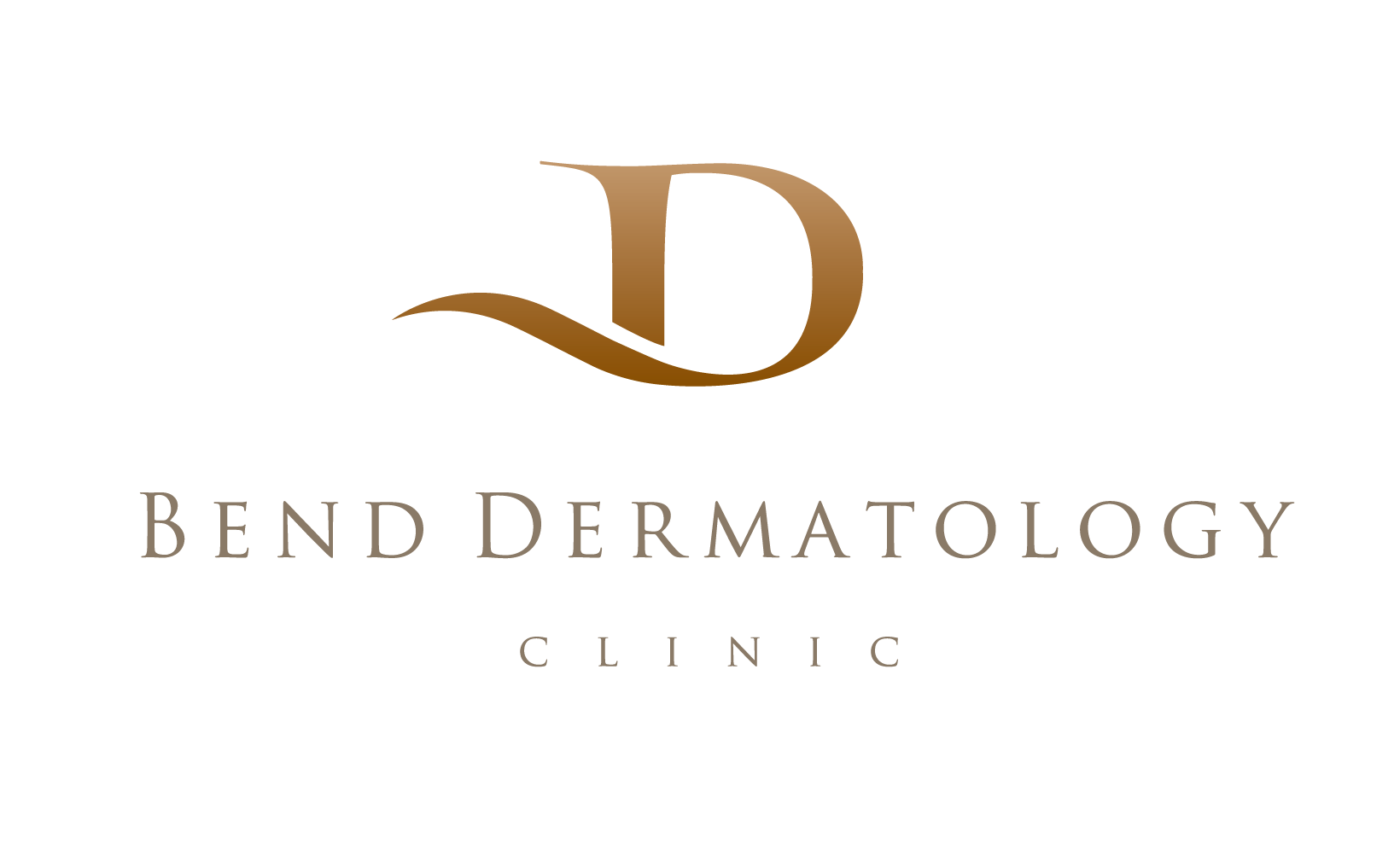By Bailey Brand, PA-C
Certified Physician Assistant
Understanding the effects of hormones on skin health is vital in comprehending the intricate relationship between hormonal imbalances and dermatological conditions.
What are Hormones?
Hormones are chemical messengers produced by the endocrine glands that are released into the bloodstream and travel to various organs and tissues in the body to exert their effects. Hormones play a critical role in regulating a wide range of physiological processes, including growth and development, metabolism, reproduction, and stress response. They interact with specific receptors on target cells, leading to changes in gene expression, enzyme activity, and other cellular processes.
Hormone Effects on the Health of Your Skin
Let’s look at some of the hormones that can influence skin health:
- Estrogen (my favorite hormone!) is essential for maintaining skin thickness, collagen production, and moisture levels. As we age, estrogen levels decline, causing our skin to become thinner, drier, and less elastic.
- Testosterone – Primarily produced in men, women also have small amounts of it. Testosterone can stimulate sebum production, leading to acne and oily skin.
- Progesterone – This hormone can increase oil production in the skin, leading to acne and oily skin.
- Cortisol – The adrenal glands produce cortisol in response to stress. High cortisol levels can lead to inflammation, exacerbating skin conditions like acne and eczema.
- Thyroid hormones – These hormones can affect skin moisture levels and hair growth. Hypothyroidism (low thyroid hormone levels) can lead to dry, thinning skin and hair loss, while hyperthyroidism (high thyroid hormone levels) can cause oily skin and hair.
- Growth hormone – This hormone is essential for collagen production and skin thickness. As we age and our growth hormone levels decline, our skin can become thinner and less elastic.
Overall, hormonal imbalances have a significant impact on skin health. If you are experiencing skin problems, it’s a good idea to talk to one of our Dermatology Providers to determine if hormones could be a contributing factor.
How Women’s Hormones Affect the Skin at Different Stages
Not surprising to most women, hormones can significantly impact their skin at various stages of their life, such as a woman’s menstrual cycle, pregnancy, and menopause. But are there things you can do to help your skin as you go through these changes?
Menstrual cycle: During the menstrual cycle, hormone levels fluctuate, which can lead to changes in the skin. For example, estrogen levels are at their highest during the first half of the cycle, which can result in clearer skin and a more even skin tone. However, progesterone levels increase during the second half of the cycle, and this can cause oilier skin, acne breakouts, and sensitive skin. Maintaining a consistent skin care routine throughout the month is important to help support the skin’s health.
Pregnancy: Hormone levels, particularly estrogen and progesterone, increase significantly during pregnancy. This can cause various skin changes, including darkening of the skin, stretch marks, acne, increased sensitivity, and in some cases, clearer skin! It is essential to use products that are safe for use during pregnancy. This may include gentle cleansers, moisturizers, and sunscreen. Avoid harsh chemicals and speak with your Provider before starting new skin care treatments.
Post-pregnancy: After giving birth, hormone levels can fluctuate as the body returns to its pre-pregnancy state. This can result in skin changes such as dryness, acne breakouts, and hyperpigmentation. If breastfeeding, be aware of safe products, and continue using a gentle skin care routine that includes moisturizing and sun protection.
Menopause: During menopause, estrogen levels decrease. This can lead to skin changes, including dryness, thinning skin, wrinkles, and age spots. Use skin care products that help to hydrate and nourish the skin. Sun protection is pivotal in preventing further damage to the skin. Use sunscreen with an SPF of 30 or higher. The American Academy of Dermatology has helpful tips for caring for menopausal skin and hair.
Maintaining a healthy lifestyle is key in all cases, including eating a balanced diet, staying hydrated, and getting enough sleep. These factors also impact the health and appearance of the skin.
Birth Control Medication and Skin Health
Birth control medication can impact skin health, and it is sometimes prescribed to treat certain skin conditions.
Certain types of birth control are called combination oral contraceptives because they contain a combination of estrogen and progestin hormones. These hormones can influence the skin in different ways. It’s important to note that the specific impact on the skin can vary depending on the individual and the type of birth control used. For example, most women find that taking birth control that contains estrogen improves their acne or reduces the oiliness of the skin. This is because the hormones in the medication can regulate androgen levels, which can contribute to the development of acne.
Others may experience adverse effects on their skin while taking birth control pills. These can include increased acne, changes in skin pigmentation, or the development of skin conditions like melasma (hyperpigmentation).
In some instances, Providers may prescribe birth control medication as a treatment for specific skin conditions. For example, combination oral contraceptives can be prescribed to manage hormonal acne or to help regulate hormonal imbalances that contribute to conditions like polycystic ovary syndrome (PCOS).
It’s crucial to consult with a Healthcare Provider or Dermatologist to discuss your specific concerns, medical history, and explore the best options for your skin health. They can provide personalized advice and recommend appropriate treatments or birth control methods based on your individual needs.
Effects of the Stress Hormone Cortisol
Yes, this stress hormone can also affect our skin. Cortisol is a hormone produced in response to stress. When the body experiences stress, cortisol levels rise. The following are some ways it can affect the skin:
- Acne – Increased cortisol levels can stimulate the sebaceous glands in the skin, leading to increased oil production. This excess oil can contribute to the development of acne or worsen existing acne.
- Skin inflammation – Cortisol has anti-inflammatory properties, but prolonged or chronic stress can disrupt the body’s cortisol balance. This imbalance can lead to increased skin inflammation, worsening conditions such as eczema, psoriasis, and rosacea.
- Impaired skin barrier function – Chronic stress and elevated cortisol levels can compromise the skin’s natural barrier function. This can result in increased water loss from the skin, leading to dryness, sensitivity, and a weakened skin barrier that is more prone to irritation.
- Slower wound healing – High cortisol levels can interfere with the normal wound healing process by slowing down the formation of new skin cells, delaying collagen production, and impairing the overall healing process of cuts, wounds, or skin injuries.
Managing stress effectively is important to minimize its impact on the skin. Strategies such as practicing relaxation techniques, regular exercise, maintaining a healthy lifestyle, and seeking support from healthcare professionals or therapists can help reduce stress levels and promote overall skin health.
If you have any questions or concerns about the health of your skin, schedule an appointment with one of our highly qualified Providers. We are available at our East Bend, West Bend, Klamath Falls, Prineville, and Redmond locations.
About the Author
Bailey Brandt, PA-C – Bailey is a Certified Physician Assistant specializing in Medical Dermatology. She earned her Master of Physician Assistant Studies from Oregon Health & Science University and is happy to be living in Bend now, where she is following her passion of helping people with their Dermatology concerns. Bailey enjoys outdoor activities in her free time, such as traveling, hiking, backpacking, camping, standup paddle boarding, skiing, running, and go

